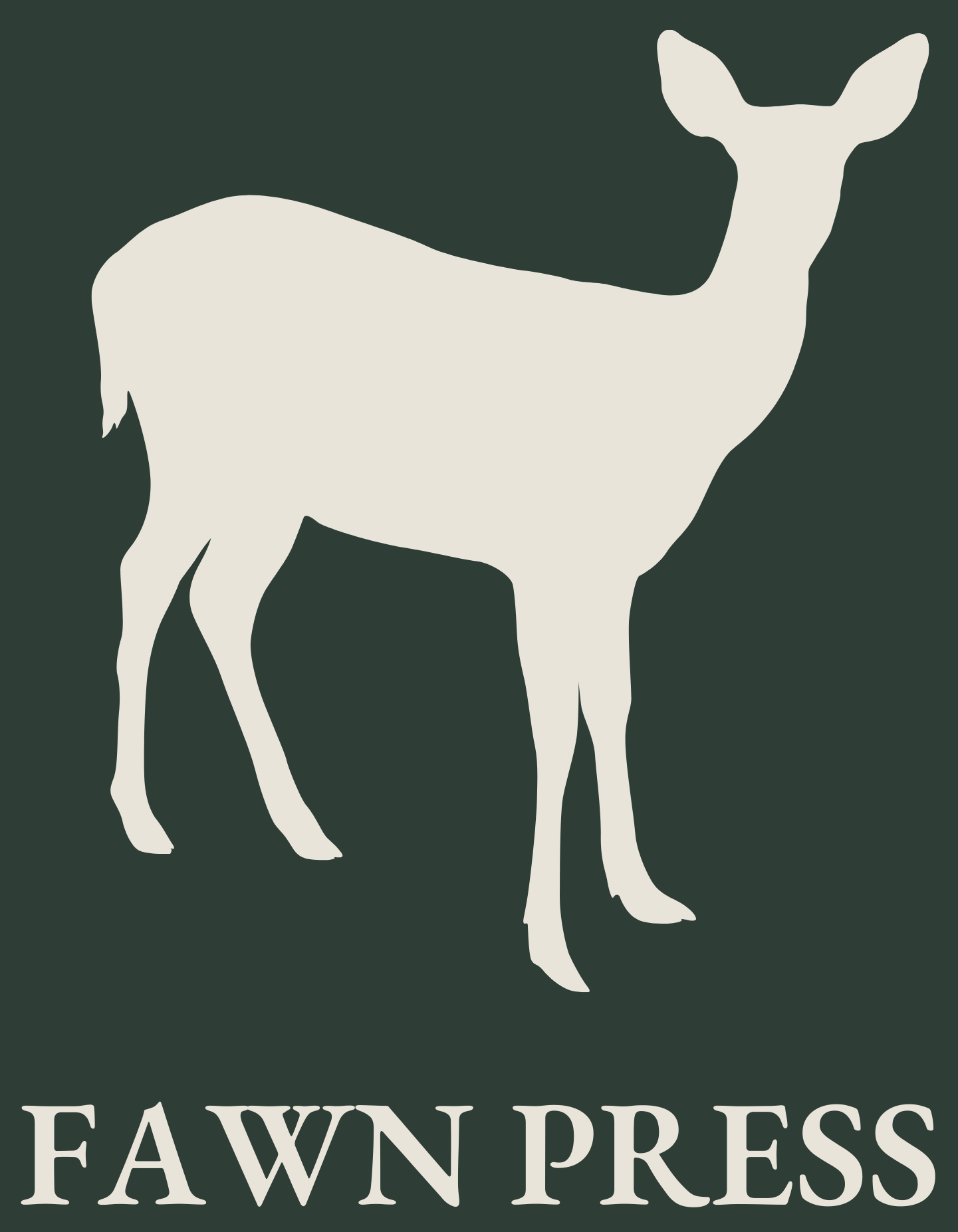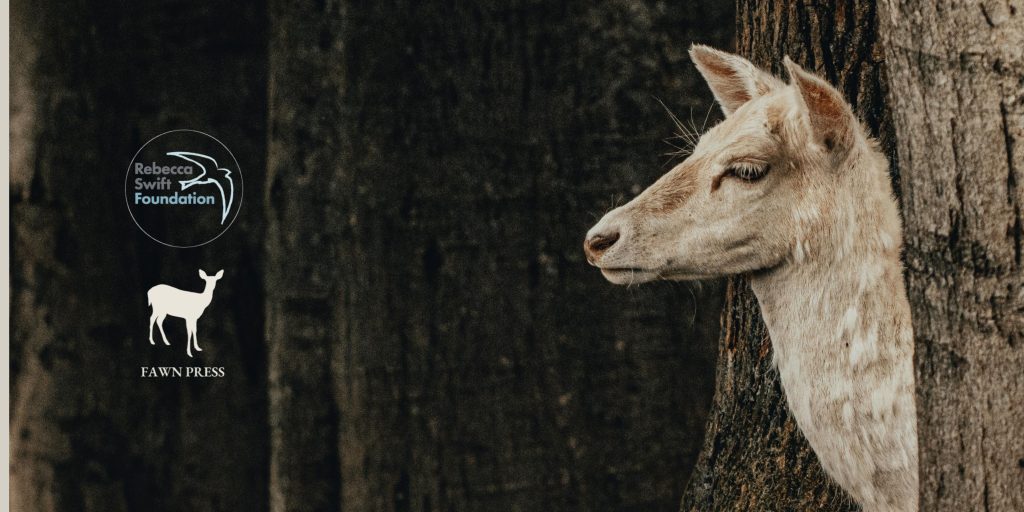One core value dear to our hearts at Fawn Press is working towards accessibility for writers and poets from all backgrounds, and with the aim of achieving this, we hosted a focus group in partnership with the incredible Rebecca Swift Foundation. This enterprise has been working hard since 2018 to enable women and non-binary writers to find their poetic voices.
The group was led by Scarlett Ward, Fawn Press Founder, and Degna Stone, writer at the Rebecca Swift Foundation, and invited writers from diverse age, racial and experience backgrounds. It was also attended by Emma Bouterse, sensitivity consultant at Social Change Studios. The two following questions were asked to the group:
- What was your journey to reach this point in your writing career?
- What blockades stand in the way of you approaching publishing houses/submitting to a publisher?
Below you will find the main talking points that were arose regarding the publishing process.
Read on to find out at the end of this article the measures put into place by Fawn Press in order to counter these barriers and ensure the programme we offer is as accessible as possible.
Challenges that the writers discussed:
- Oftentimes, there is a theme for submissions. Whilst it can be inspiring, it can also come across as limiting and strict if the piece you’d like to submit doesn’t fit into this particular theme.
- The process is time-consuming: the applications can be admin-heavy and require a lot of time and energy with no answers or feedback provided, which can be disheartening. Submissions guidelines aren’t always clear and concise in their instructions.
- Having a social media platform as a creative seems indispensable nowadays and whilst it is a great way to connect and to get your work out there, it can be daunting if social media is not your thing and if your presence and following is not seen as “big enough.”
- A lot of programmes have age restraints in order to give opportunity to younger writers. Whilst these programmes are crucial to help a young creative make a start in their career, the existence of programmes with no age restraints would be an amazing way to be more inclusive, and to encourage people from all age ranges to pick up a pen and embrace their creativity, regardless of where they’re at in their writing career.
- Digital language can sometimes be cryptic and not as accessible as we might think. Widening the submission format to make it simpler and have several alternatives is helpful (allowing postal submissions, for instance.)
- Cherry-picking seems to be popular with prizes, where a poet is chosen because they have featured in many other publications.
- Live events with poor accessibility for those with disabilities alienates people from attending.
- Publishing with little to no mentoring or guidance through the editing process can be daunting.
Our findings and responses: how can we make the programme more accessible?
FINANCIAL
Expensive. Pay-to-play. Not affordable.
- Fawn press will offer free submissions.
- There will be paid runner up places, where each poem will receive £20 per poem fee.
- Fair royalty deal on publishing contract.
MARGINALISED GROUPS
Selection based on bias and prejudice. Alienating language.
- We had a gender-inclusive renaming of programme.
- We request of pronouns in submission email.
- Working with ‘With Not For” to employ disabled illustrators and artists.
- No age restrictions apply .
- Absolutely condemning racism, homophobia, ableism and ageism, whilst giving preference to minority groups.
SUBMISSIONS ADMIN
Complicated submissions rules and guidelines/Not accepting various forms of submission
- Poets are able to submit via both Word and Google docs.
- Can post physical copies via post.
- There exists few guidelines as possible so as not to confuse.
- We have a dedicated email address to ask questions.
- Poets will receive a reply as to whether their application was successful or not.
- We will aim to keep the reply time as short as possible.
‘CHERRY-PICKING‘
Poets identified that they felt in many other prizes/programmes, winners tended to be picked based on ‘celebrity’, a big social media following, and selections were based on previous accolades.
- No previous publication history required.
- No cover letter or writing CV required.
PHYSICAL ACCESSIBILITY
Disability, mobility issues and health issues isolating writers from IRL events.
- All editing workshops will be held on Google Meets online conferencing platform. A link will be emailed directly so no need to download any apps or tools.
- Flexible work hours for editing workshops.
- Online book launches (as well as physical.)
- Online open mic events on IG/interviews.
- Blog book tour bookings.
- We will only be organizing events at wheelchair-accessible venues.
SUPPORT/MENTORSHIP
Working alone in a vacuum. Working without a mentor’s guidance. Time when working full-time.
- Dedicated 1:1 sessions with Scarlett over the 5 weeks of editing sessions and beyond into their writing career.
- Workshops with guest editors and poets.
- Setting up a digital ‘writing space’ where people can join a IG live stream in order to carve time into their day to write on any project they have. Un-focus led, free to do their own thing OR can follow a simple prompt.
- Only ask for 5 poems in submission selection to reduce the demand on time and effort in submission.
- Working with Navigating the Wildness to offer optional MH/bereavement/ support and pastoral care sessions. “Collective care network” for anyone that has been published by Fawn Press (navigating trauma sessions with qualified practitioner and Grief worker .
We hope that by analysing and sharing our findings, we can help make poetry more accessible for everyone. We are open to feedback and would love to hear your thoughts!

